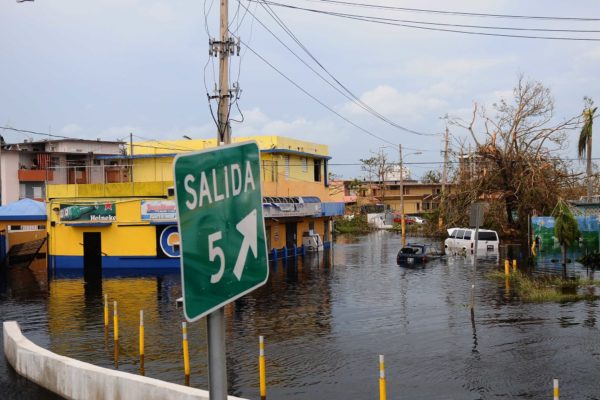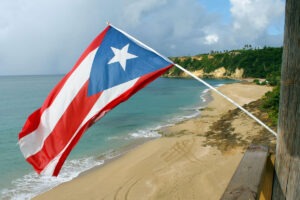
September 30, 2017; Business Insider and CNN
As we all by now know, Trump spent much of this past weekend tweeting ugly messages to Carmen Yulín Cruz, the mayor of San Juan, who had the audacity as a Latina to criticize the slowness of the federal rescue response to San Juan. Those tweets, seemingly mindless, could not have been more carefully crafted to fit racist narratives. In one, he said that Puerto Ricans, still without communication, food, water and medical supplies, were expecting to have everything done for them instead of pitching in as a community. This kind of glib infantalization is supported by yet another tweet in which he called those protesting “ingrates,” as if they were in a parent/child—or, perhaps more accurately, colonialist—relationship, where the colonized are characterized as incapable of sophisticated action.
The use of the imagery of the ungrateful colonized or enslaved person in race rants is hardly new. Last week, Jelani Cobb wrote “From Louis Armstrong to the NFL: Ungrateful as the New Uppity.” In this article for the New Yorker, he writes,
Visible, affluent African American entertainers are obliged to adopt a pose of ceaseless gratitude—appreciation for the waiver that spared them the low status of so many others of their kind. Stevie Wonder began a performance in Central Park last night by taking a knee, prompting Congressman Joe Walsh to tweet that Wonder was “another ungrateful black multi-millionaire.” Ungrateful is the new uppity. Trump’s supporters, by a twenty-four-point margin, agree with the idea that most Americans have not got as much as they deserve—though they overwhelmingly withhold the right to that sentiment from African Americans. Thus, the wonder is not the unhinged behavior of this weekend but rather that it took Trump so long to exploit a target as rich in potential racial resentment as wealthy black athletes who have the temerity to believe in the First Amendment.
And the same goes for women who have the unbridled temerity to demand a response to Puerto Rico equal to that which would have occurred on the mainland.
Sign up for our free newsletters
Subscribe to NPQ's newsletters to have our top stories delivered directly to your inbox.
By signing up, you agree to our privacy policy and terms of use, and to receive messages from NPQ and our partners.
Trump insists that considering the logistics, things have gone very well, But, let’s take that “considering the logistics” phrase up for a moment. At the very core of an effective disaster response is preplanning that assumes that even the most inaccessible places will be affected, that takes into account the state of the infrastructure and any other special contextual issues, like poverty or functioning as an island under the crippling Jones Act. Understanding all of that as a necessary foundation to disaster preparedness makes the protestations about logistics, as if the federal government were caught completely unaware, nonsensical.
Meanwhile, the retread racist imagery was not the only tableau the American people were forced to observe. Why was the president so slow to mobilize himself to the devastated island? The Associated Press reports:
Trump…appeared unconcerned with the optics of spending his Sunday afternoon watching The Presidents Cup at the Liberty National Golf Club as the crisis continued. Trump was a guest in the commissioner’s hospitality suite perched above the course’s 14th hole, and he waved several times at news cameras positioned briefly on the grass below.
When Trump presented the trophy to Team U.S.A., he dedicated it to the people of Puerto Rico, Texas, and Florida still recovering from hurricane devastation. Referring to Puerto Rico, Trump said: “We have it under really great control.”
—Ruth McCambridge













